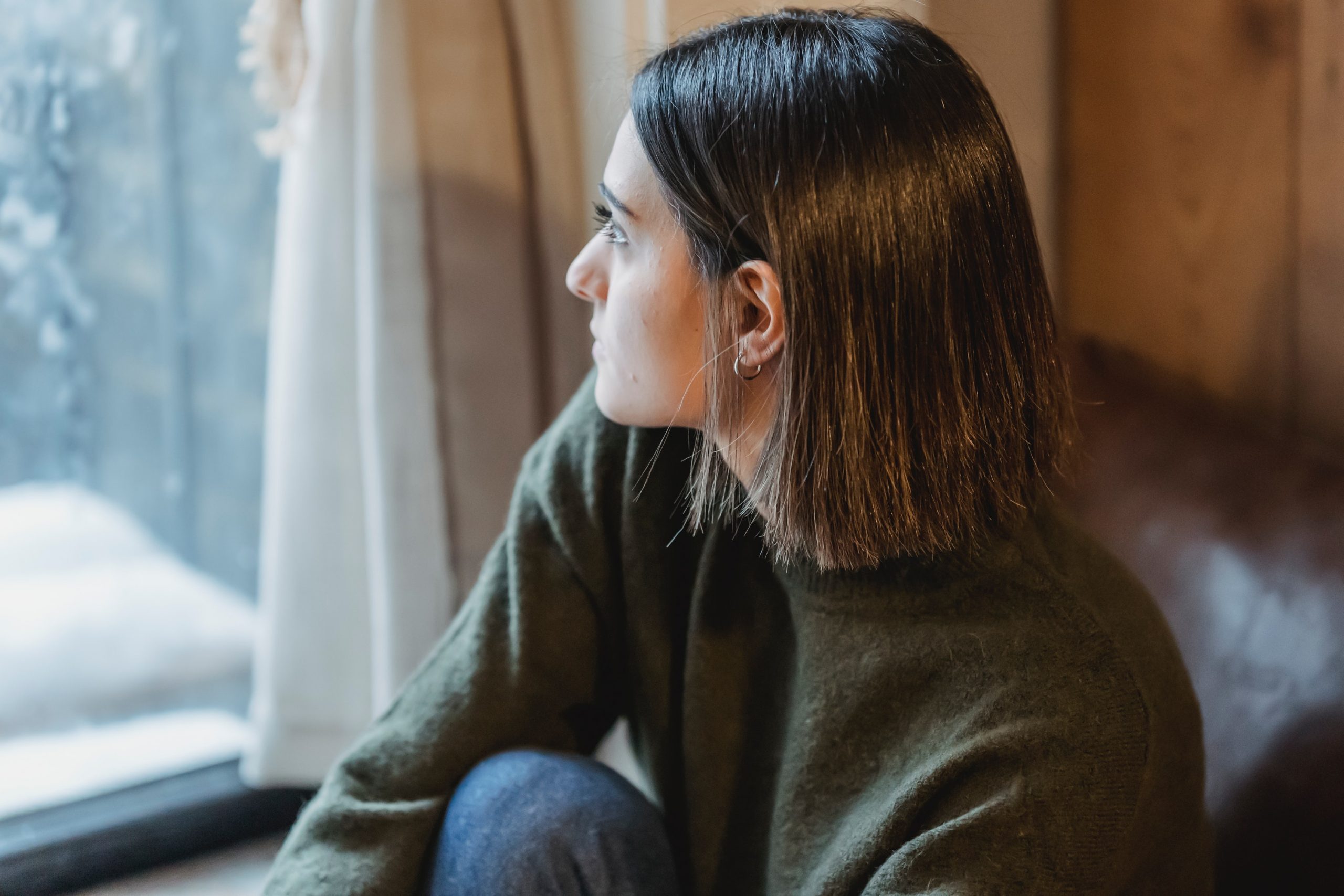Why Do INFJs Isolate Themselves? (6 Important Reasons)
Apr 20, 2022

As sensitive and introspective beings INFJs tend to spend a lot of their time in isolation. Many are puzzled by why they choose to live this way.
The INFJ is one in 16 Myers-Briggs personality types, making up roughly 1-2 percent of the population.
“INFJ” is an acronym which stands for Introversion (I), Intuition (N), Feeling (F) and Judging (J).
These four core characteristics describe the cognitive functions INFJs use the most to navigate through life.
I have comprised a list of reasons why INFJs tend to isolate themselves. This is based on my experiences as an INFJ male and the INFJs in my life and on the internet.
Curious about what could be some of the reasons? Then let’s investigate 6 reasons why INFJs self-isolate!
6 Important Reasons Why INFJs Isolate Themselves
1. INFJs might isolate themselves during an existential crisis
As you may know, INFJs like to be right on the border between the known and the unknown when it comes to philosophical ideas and existential concepts.
It is the exploration of new abstract territory that provides their mind and spirit the intellectual and creative challenges they crave.
More so, they practice introspection very intensely and strive to grow and improve themselves on a consistent basis.
For instance, improving their social skills to help them increase their ability to foster harmonious social interactions.
Or catching their own negative behavior so that it can be corrected, like getting up too late, or taking up too much space during conversations.
The upside of the INFJ’s ingrained habit to ceaselessly introspect is that they develop themselves in a wide-range of psychological, ethical and intellectual domains and manage to achieve a fairly high general standard for most of them.
For example, integrity is a value INFJs are renowned for and very much strive to uphold.
The downside of this psychoanalytical brain surgery the INFJ tediously performs on themselves by introspecting, is that it is without any anesthetics: very invasive and outright painful.
They usually won’t let themselves get away with anything.
If you’ve spent just a little time being brave enough to honestly assess your own integrity, motives, character and behavior patterns you might have quickly found out that this is absolutely no picnic!
It can be very shocking to realize, you haven’t been the person you thought you were.
Or to discover that the way you’ve been living your life up until now has been mostly a huge lie and that you need to make a fundamental change.
Realizations like these can be world-shattering.
Since the INFJ is like the deep sea scuba diver that ventures on the border of the depth where the ocean pressure starts to crush them, they have a high chance of going too deep at times when introspecting.
INFJs can find themselves therefore often in an existential crisis, because by going too deep they perhaps found some contradictions in some of their fundamental beliefs.
Then they isolate themselves, because the resulting feelings of anxiety, confusion and being distraught are overwhelming.
INFJs isolate themselves when in the midst of an existential crisis to calm down.
In the middle of an existential crisis they are psychologically very vulnerable.
They hate being vulnerable and want to regain emotional control as soon as possible without anyone noticing that they’re down.
Despite self-isolation being the worst way for most people to deal with a problem of this magnitude, to the INFJ it is a way to self-protect and retreat to consequently become calm enough to start dealing with their problem.
2. INFJs might isolate themselves, because they prefer to solve their problems alone
Whether it’s a survival mechanism born out of trauma causing INFJs to be so independent.
Or merely their introverted reclusive nature. Who knows?
What we do know is that INFJs tend to face the world alone and even prefer it that way.
When facing problems, INFJs might self-isolate, because they want to solve their problems by themselves.
To do so, they really need their time to contemplate and for them this is done best in isolation.
For instance, their introvert sanctuary (bedroom, home, or any place where they feel safe), which is their bat cave so to speak.

Photo by Cottonbro on Pexels
As seasoned mavericks, INFJs have their own unique ways of thinking, analyzing and strategizing.
Perhaps, to them only their own unique mind can solve their own unique INFJ problems.
Perhaps, a careful inductive conclusion drawn from years of experience feeling like a misfit in society and being misunderstood.
INFJs are idealistic and independent therefore liking efficiency and self-control.
The average person’s strategy for solving a problem might be talking to a lot of different friends and family members about it and applying their advice.
To INFJs sharing their particular problem with many people sounds exhausting and a waste of time.
Because all that time spent sharing the problem with others, could’ve been spent solving it by themselves.
Furthermore, INFJs value their privacy, and don’t like it when many people are aware of their personal struggles.
An INFJ needs to be in control of themselves and doesn’t like to be vulnerable and too dependent on many people.
With their trust being extra fragile, INFJs become anxious and self-conscious when they expose themselves too much to others.
So unless you’re their best friend (who asks sincerely), you wouldn’t hear a peep.
So back to the shadows of their bat cave it is, where they’ll hang upside down and plot their next best move out of the sticky situation like a true SuperHero!
3. INFJs might isolate themselves, because they don’t want to burden others with their problems
Closely tied to the INFJ’s tenacious tendency to solve their own problems, is that they don’t want to burden others with their problems.
INFJs could be described as the gatekeepers of harmony in human interactions.
You’ll notice that they are very warm, empathic and calm individuals who can easily energetically adjust to whoever they’re interacting with and make them feel at ease.
Whether it’s their exceptional listening skills or their sharp, witty humor.
INFJs can masterfully dismantle most initial psychological guards people hold up against them.
The INFJ’s ability to sense the emotional atmosphere to such a great degree is powered by their Extraverted Feeling (F) cognitive function.
They really feel responsible for the emotional environment and talking about their problems to others in the INFJ’s eyes would disrupt that precious harmony.
More so, as personalities with a strong sense of responsibility INFJs are convinced they must be able to handle their problems on their own.
INFJs shine in being the counselors and confidants to many and value other people’s need for help.
Paradoxically enough, INFJs may view their own need for help as weak! It’s crazy, I know!
Yet, this is how it is.. They self-isolate to deal with their own problems, so that they don’t have to bother anyone and by doing so keep the harmony intact.
4. INFJs might isolate themselves for emotional regulation
To INFJs, self-isolation as a means to emotionally regulate isn’t limited to the onset of a daunting existential crisis.
In fact isolating oneself is used for emotional regulation on a regular (daily) basis.
As introverts and often highly sensitive people, INFJs can get overwhelmed by the many impressions they are exposed to during the day.
For example, after a busy day at work, commuting back home or interacting with many people, the INFJ’s nervous system has had far more than its healthy share of stimulation than most personalities.
To reduce the feelings of overwhelm, stress, anxiety or fatigue, they need to retreat to some place safe and quiet (introvert sanctuary remember?).

Photo by Liza Summer on Pexels
The Empath’s Survival Guide Online Course (affiliate link) by Dr. Judith Orloff offers useful strategies and methods for empaths to deal with overstimulation.
Sign up for a free introduction webinar via my friends at Sounds True here (affiliate link).
Depending on how intensely stimulating their day was, INFJ’s might need a few hours to calm down their senses again and feel at ease.
Self-isolation is their perfect tool for emotional regulation and a daily necessity for most!
5. INFJs might isolate themselves when working on their life goals
One of the aspects that set INFJs apart from many other personality types is their tendency to be dreamers that also take radical action.
Get help for meaningful life goals. Click here to book an Online Therapy session and get a special 20% discount the first month!
Even though, not every INFJ has their own life goals precisely defined, on some intuitive level they have a deep sense that they must devote their life to a greater meaningful cause.
However, discovering what that could be may take a lot of soul searching. Manifesting concrete life goals for that matter may take a lifetime!
So INFJs might isolate themselves a lot in their attempt to figure out their life goals and to manifest them.
It’s an essential need and a moral obligation for them.
This sheer reclusive, bohemian/mad scientist existence on the outskirts of social and societal structures is therefore a common way INFJs spend most of their time trying to reach their envisioned promised land.
6. INFJs might isolate themselves when they are depressed
Like was mentioned before, the INFJ is like a deep sea scuba diver that is adapted to dive to a certain depth in the ocean.
Even though it is their natural habitat and they actually need that depth to function properly, going much deeper can be detrimental even for them.
Many that observe a healthy INFJ’s reclusive and independent lifestyle would think they are already depressed.
Despite, living mostly in isolation is natural for an INFJ, they also self-isolate when they go too far into the depths and become depressed.
Depression is a mood disorder many INFJs struggle with at some point in their lives.
It can be hard to distinguish between the INFJ’s normal way of existing (hermit lifestyle) and the general symptoms that accompany depression (withdrawal from the outside world and society).
Therefore, it is important to learn about the symptoms of depression to determine you are not spiraling downwards.
Please seek professional help if you think you might be depressed or have any mental condition.
INFJ Male Psychology is an affiliate of Online-Therapy.com (affiliate link), which is a dedicated online-based team of health professionals that can offer you emotional support from wherever you are in the world.
Get help for depression. Click here to book an Online Therapy session and get a special 20% discount the first month! Take care of yourself.

INFJ Male
As a psychologist with a Master's degree in Clinical & Health Psychology, and as an INFJ male, highly sensitive human being, the author aims to blend the objective, subjective, mind, body and spirit for a holistic view on true well-being
for INFJs, Introverts, Highly Sensitive People and Empaths!
ALSO ON INFJ MALE PSYCHOLOGY

